
Reims: The Sparkling Heart of Champagne Country
Reims, a city in northeastern France, is renowned for its rich history, stunning architecture, and world-famous champagne. Nestled in the heart of the Champagne region, Reims offers a perfect blend of cultural heritage and modern charm. Visitors are often drawn to its grand cathedrals, historic sites, and the luxurious champagne houses that dot the landscape. One of the city's most iconic landmarks is the Notre-Dame de Reims, a Gothic masterpiece where French kings were once crowned. The cathedral's intricate facade and impressive stained glass windows are a sight to behold. Nearby, the Palais du Tau, a former archbishop's palace, now serves as a museum showcasing the history of the French monarchy and the coronation ceremonies. Champagne enthusiasts will find Reims a paradise, as it is home to some of the most prestigious champagne houses, including Veuve Clicquot, Taittinger, and Pommery. Many of these historic maisons offer guided tours and tastings, providing an opportunity to explore the art of champagne-making and to taste some of the finest bubbles in the world. Beyond its historical and vinous allure, Reims boasts lively squares, charming cafes, and exquisite restaurants. The Place Drouet d'Erlon, lined with shops and eateries, is a popular spot for both locals and visitors. For those interested in history, the Musée de la Reddition, where the German surrender was signed in 1945, offers a poignant glimpse into World War II history. Whether you are a history buff, a food lover, or a champagne aficionado, Reims has something to captivate every traveler.
Local tips in Reims
- Book champagne house tours in advance, especially during peak season, to ensure availability.
- Wear comfortable shoes as exploring the city involves a lot of walking, particularly around historical sites.
- Visit the Reims Tourist Office for maps, brochures, and up-to-date information on local events and attractions.
- Try to visit the local markets, such as the Halles du Boulingrin, for fresh produce and regional specialties.
- Consider purchasing a Reims City Pass for discounts on museum entries and public transportation.
- Take a stroll along the Canal de l'Aisne à la Marne for a relaxing experience away from the bustling city center.
Neighbourhoods in Reims
Reims: The Sparkling Heart of Champagne Country
Reims, a city in northeastern France, is renowned for its rich history, stunning architecture, and world-famous champagne. Nestled in the heart of the Champagne region, Reims offers a perfect blend of cultural heritage and modern charm. Visitors are often drawn to its grand cathedrals, historic sites, and the luxurious champagne houses that dot the landscape. One of the city's most iconic landmarks is the Notre-Dame de Reims, a Gothic masterpiece where French kings were once crowned. The cathedral's intricate facade and impressive stained glass windows are a sight to behold. Nearby, the Palais du Tau, a former archbishop's palace, now serves as a museum showcasing the history of the French monarchy and the coronation ceremonies. Champagne enthusiasts will find Reims a paradise, as it is home to some of the most prestigious champagne houses, including Veuve Clicquot, Taittinger, and Pommery. Many of these historic maisons offer guided tours and tastings, providing an opportunity to explore the art of champagne-making and to taste some of the finest bubbles in the world. Beyond its historical and vinous allure, Reims boasts lively squares, charming cafes, and exquisite restaurants. The Place Drouet d'Erlon, lined with shops and eateries, is a popular spot for both locals and visitors. For those interested in history, the Musée de la Reddition, where the German surrender was signed in 1945, offers a poignant glimpse into World War II history. Whether you are a history buff, a food lover, or a champagne aficionado, Reims has something to captivate every traveler.
When is the best time to go to Reims?
Iconic landmarks you can’t miss
Cathedral of Notre-Dame of Reims
Explore the breathtaking Cathedral of Notre-Dame of Reims, a UNESCO World Heritage site, rich in history and Gothic architectural splendor.
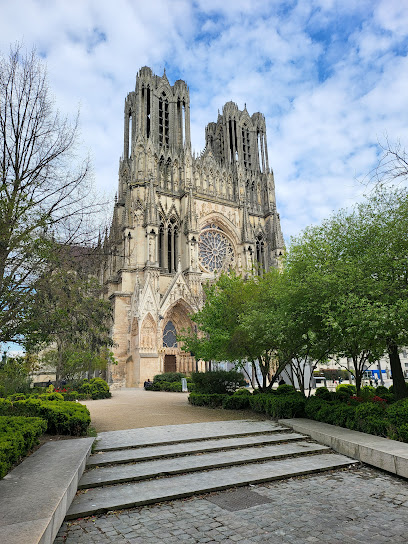
Place Drouet d'Erlon
Experience the vibrant heart of Reims at Place Drouet d'Erlon, where culture, cuisine, and community converge in a historic setting.
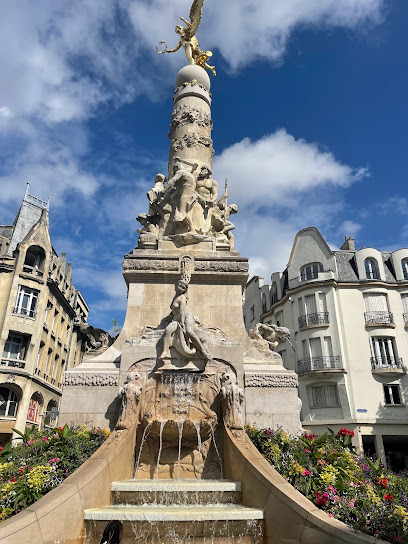
Basilique Saint-Remi
Discover the breathtaking Basilique Saint-Remi in Reims, a UNESCO World Heritage Site rich in history and stunning architecture, perfect for history enthusiasts and tourists alike.
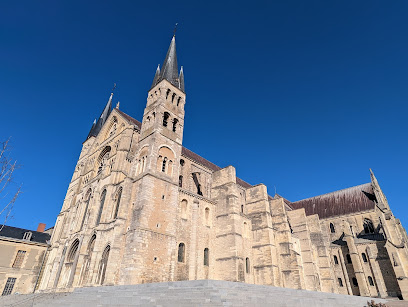
Parc de Champagne
Explore the lush beauty of Parc de Champagne in Reims, a serene park perfect for relaxation and family outings amidst nature's splendor.
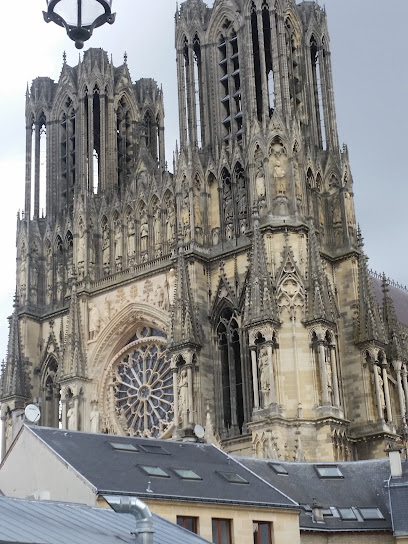
La Porte de Mars
Discover La Porte de Mars, an impressive Roman triumphal arch in Reims, showcasing stunning architecture and rich historical significance for all visitors.
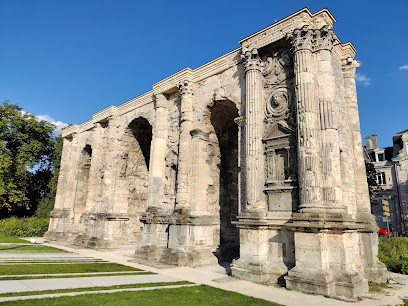
Musée Automobile Reims Champagne
Explore the fascinating world of automobiles at Musée Automobile Reims Champagne, where history and innovation collide in a family-friendly environment.
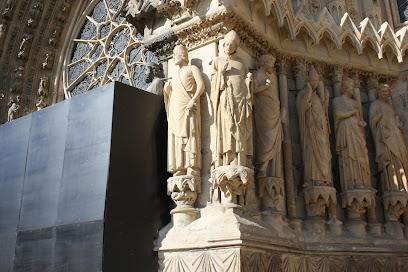
Opéraims
Discover the charm of Reims at Opéraims, where cinematic experiences come to life amidst a vibrant atmosphere and a rich selection of films.
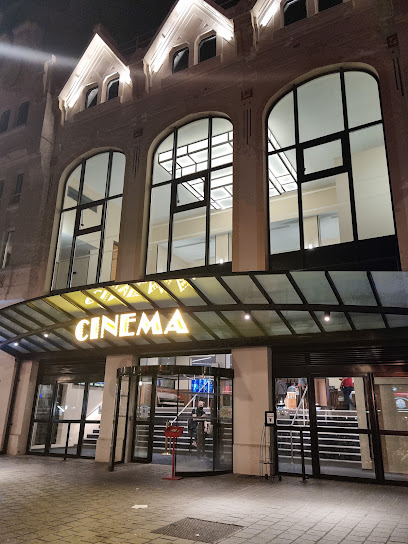
Fort de la Pompelle Museum
Immerse yourself in the poignant history of WWI at Fort de la Pompelle Museum, a vital military heritage site near Reims, France.
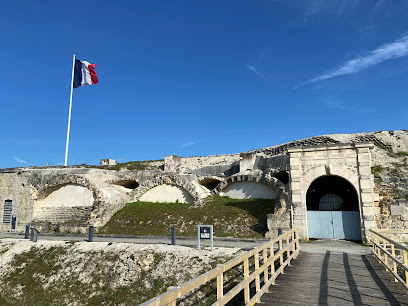
Palais du Tau
Explore the rich history of French royalty at the iconic Palais du Tau in Reims, a UNESCO World Heritage site showcasing regal artifacts and stunning architecture.
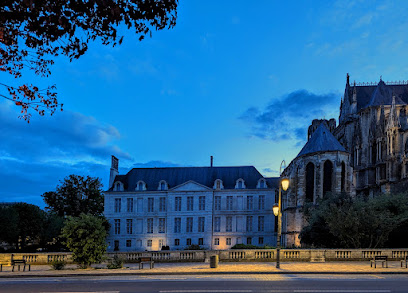
Musée de la Reddition
Explore the Musée de la Reddition in Reims, where history comes alive at the site of Germany's surrender in World War II.
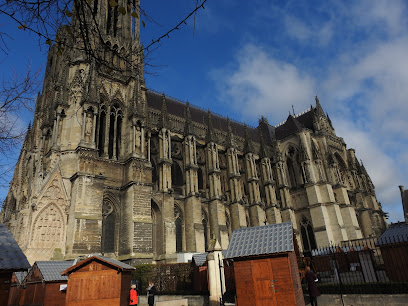
Cryptoportique
Discover the fascinating history of the Cryptoportique in Reims, an ancient Roman landmark that showcases stunning architecture and rich cultural heritage.
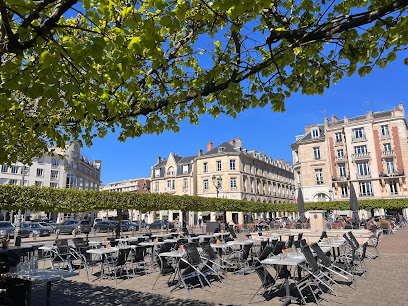
Champagne Vranken - Villa Demoiselle
Explore the elegance of Champagne Vranken - Villa Demoiselle in Reims, where history meets luxury in the heart of the Champagne region.
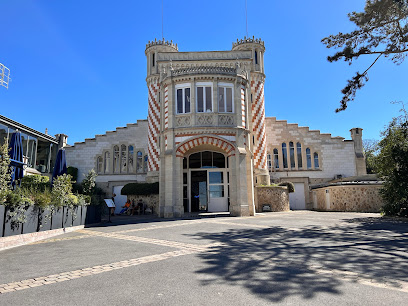
Reims Touristic Office
Discover the Champagne region with expert tips and resources at the Reims Touristic Office, your essential starting point for an unforgettable journey.
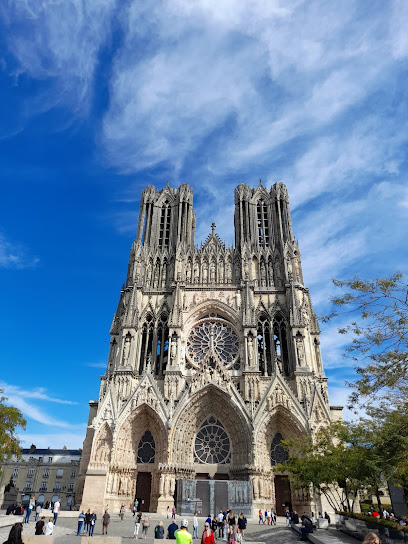
Musée Saint-Remi
Discover the captivating history and art of Reims at Musée Saint-Remi, a former Benedictine abbey filled with archaeological treasures and serene gardens.
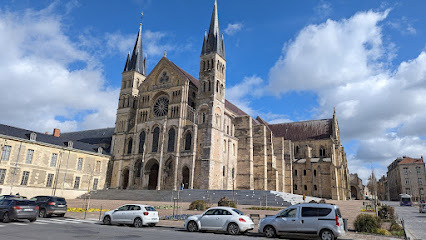
Square Colbert
Discover the charm of Square Colbert, a lush park in Reims offering relaxation, beauty, and a taste of local culture amidst stunning surroundings.
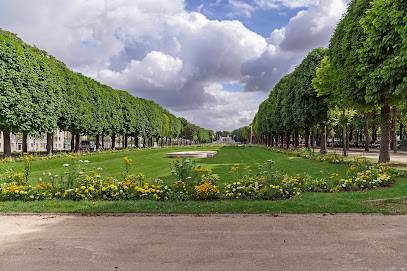
Unmissable attractions to see
Basilique Saint-Remi
Explore the Basilique Saint-Remi in Reims, a UNESCO site blending Romanesque & Gothic architecture, rich in history & home to Saint Remi's relics.
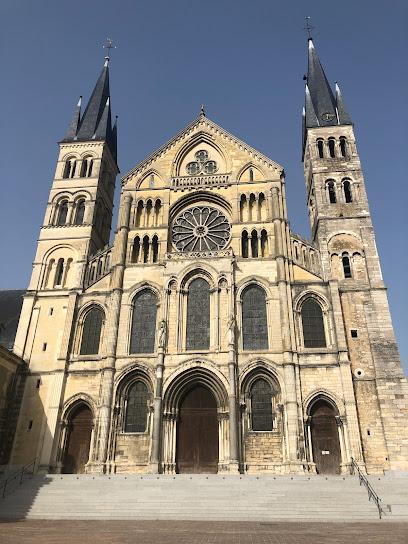
Parc Léo Lagrange
Escape to Reims' largest urban park: a green oasis with a lake, wetland, playgrounds, and sports facilities for all ages to enjoy.
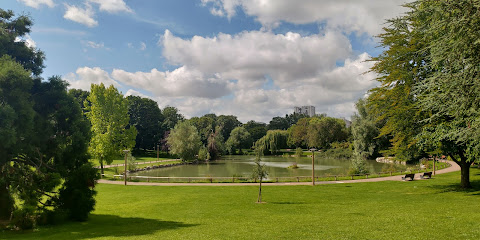
Parc de Champagne
Discover a blend of nature, history, and recreation in Reims' expansive Parc de Champagne, a serene escape for all.
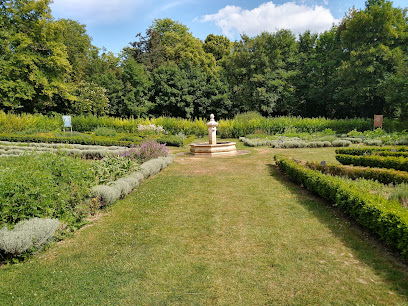
Halles Boulingrin
Discover local flavors and unique architecture at Reims' historic Halles Boulingrin, a vibrant marketplace reborn from the ashes of WWI.
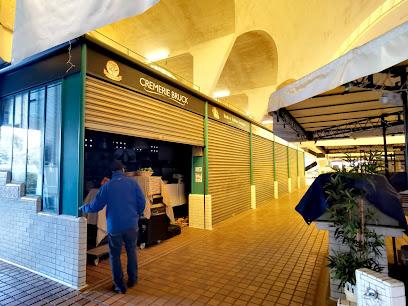
Vranken Pommery domain
Discover the legacy of Vranken Pommery in Reims: a blend of champagne history, art, and exquisite architecture.
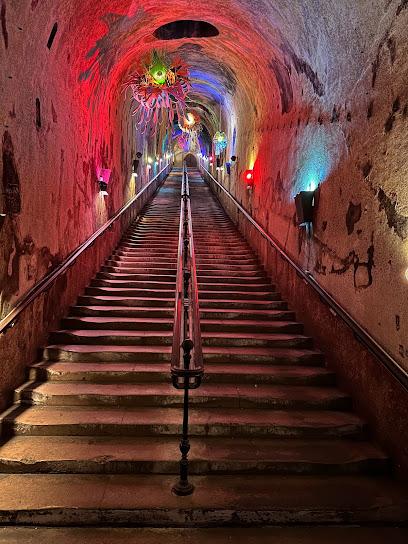
Musée Automobile Reims Champagne
Explore over a century of automotive history at Musée Automobile Reims Champagne, featuring 230+ vehicles from 1908 to today!
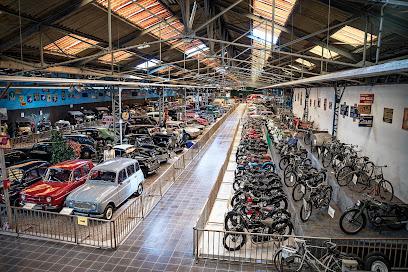
Moët et Chandon
Experience the heritage and elegance of Moët et Chandon, the world's most celebrated Champagne house, in the heart of Épernay.
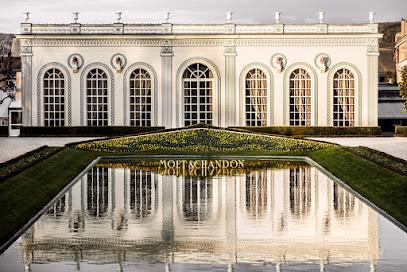
Veuve Clicquot Ponsardin - Visitors Center
Explore the legacy of Veuve Clicquot, one of the world's most iconic Champagne houses, through tours, tastings, and historical exhibits in Reims.
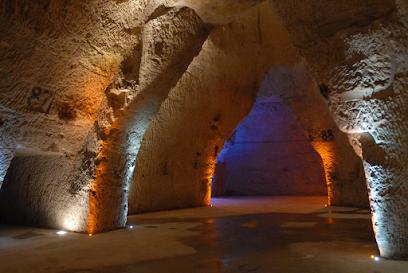
Champagne Mercier
Explore 18km of cellars by train & taste accessible, fruity Champagnes at Mercier, a historic house on Épernay's Avenue de Champagne.
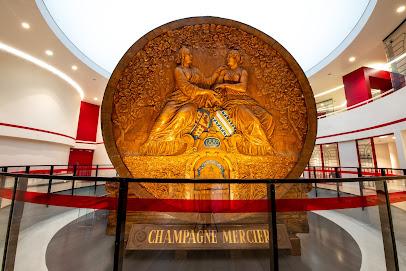
Square de la Patte d'Oie
Experience tranquility at Square de la Patte d'Oie, Reims' picturesque urban park, perfect for relaxation and leisurely strolls amidst stunning gardens.
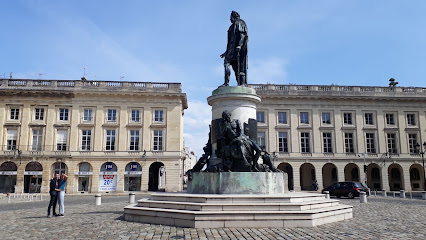
Lighthouse Verzenay in Champagne - Museum of the Vine
Discover Champagne's history and production at this unique lighthouse museum with panoramic vineyard views in the heart of the Montagne de Reims.
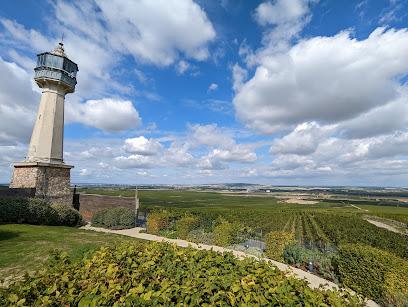
Musée Automobile Reims Champagne
Explore over a century of automotive history at the Musée Automobile Reims Champagne, featuring a diverse collection of cars, motorcycles, and miniatures.
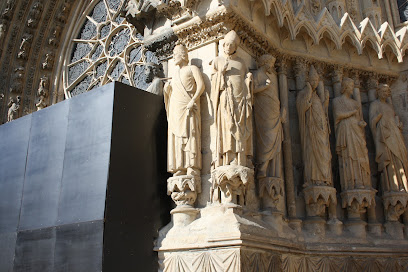
Fort de la Pompelle Museum
Explore a WWI battlefield and museum just outside Reims, featuring a unique collection of German military artifacts and immersive exhibits.
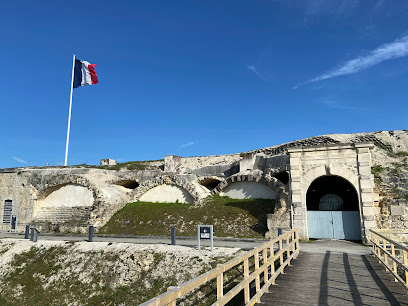
Palais du Tau
Explore the stunning Palais du Tau in Reims, a UNESCO World Heritage site showcasing the rich history and architecture of France's royal past.

Champagne Taittinger | Visites des caves de champagne Reims
Discover the elegance and heritage of Champagne Taittinger, a family-owned house in Reims with centuries of sparkling wine tradition.
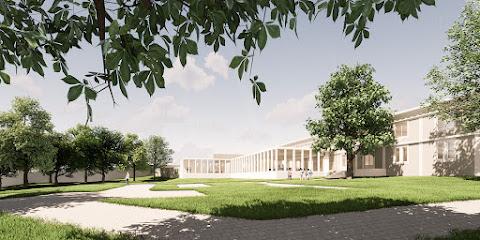
Essential places to dine
L’Édito
Experience authentic French cuisine at L’Édito in Reims – where culinary tradition meets modern flair in an inviting atmosphere.
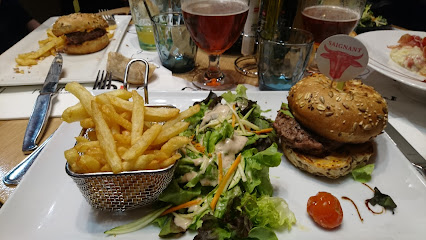
Brasserie Le Gaulois
Discover Brasserie Le Gaulois: A charming French restaurant in Reims offering exquisite cuisine, vibrant ambiance, and exceptional service.
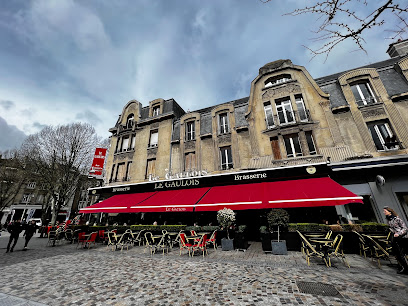
Au Bureau
Discover Au Bureau in Reims - where delicious food meets vibrant ambiance in a charming setting perfect for any occasion.
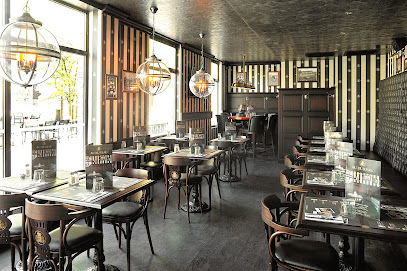
L'Apostrophe
Experience authentic French cuisine at L'Apostrophe, a charming brasserie in the heart of Reims offering delicious dishes and a vibrant atmosphere.
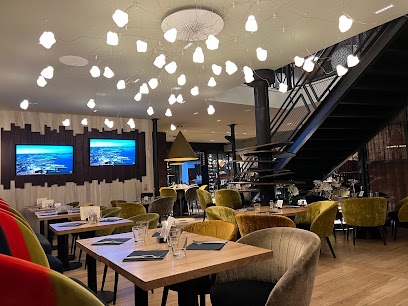
Le Tablier Reims
Discover exquisite French cuisine at Le Tablier Reims – where tradition meets modern elegance in the heart of Champagne.
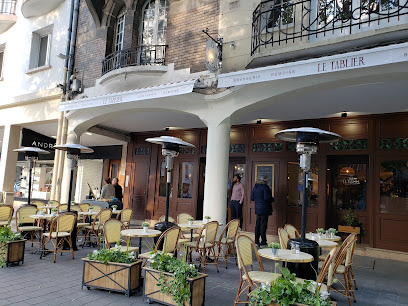
Brasserie Excelsior Reims
Discover Brasserie Excelsior in Reims: A culinary haven serving exquisite French cuisine in an elegant setting.
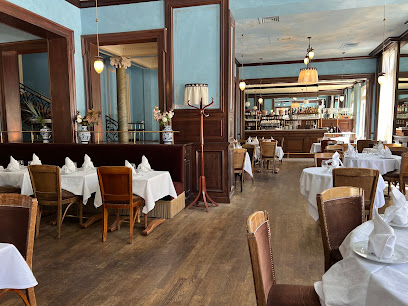
Le Petit Basque
Experience authentic Basque cuisine in Reims at Le Petit Basque - where tradition meets taste in every dish.
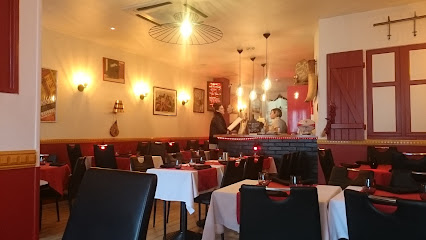
Restaurant Lexperience Reims
Experience the vibrant flavors of French cuisine at Restaurant Lexperience in Reims - where tradition meets innovation in every bite.
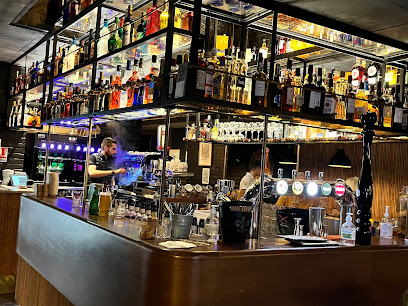
Bistrot du Forum
Experience authentic French cuisine at Bistrot du Forum in Reims – where every meal tells a story.
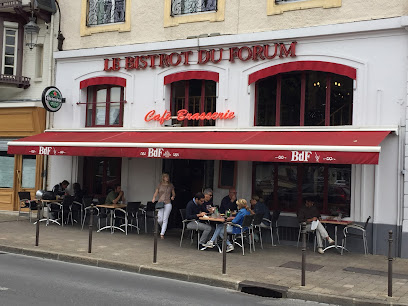
Le Grand Cafe
Discover the essence of French cuisine at Le Grand Cafe in Reims – where tradition meets modern flair for an unforgettable dining experience.
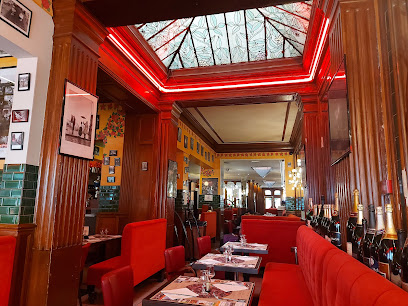
Harold Le Restaurant
Experience the finest of French cuisine at Harold Le Restaurant in Reims – where tradition meets innovation in every dish.
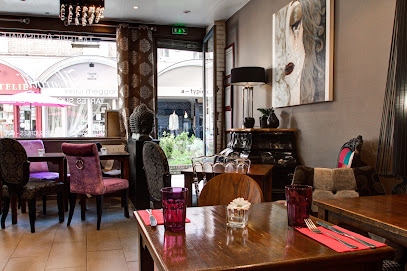
Le Millénaire
Discover exquisite French cuisine at Le Millénaire in Reims - where every dish tells a story of tradition and innovation.
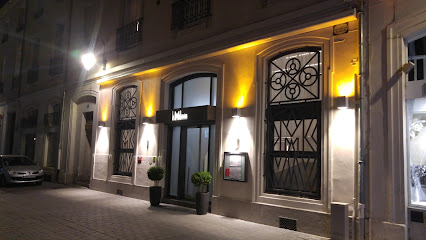
Restaurant Gabrielle Toit Terrasse
Discover exquisite French dining at Restaurant Gabrielle in Reims—where tradition meets innovation for an unforgettable culinary journey.
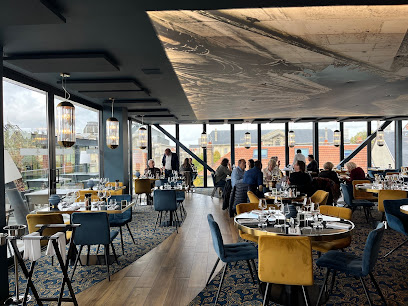
Le Riad
Discover the rich tastes of Moroccan and French cuisine at Le Riad in Reims – a culinary gem offering an unforgettable dining experience.
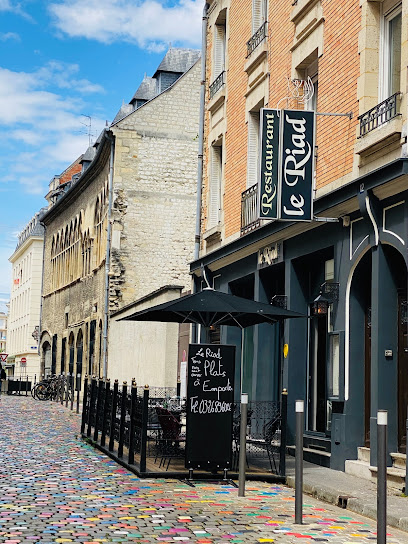
La Villa
Savor authentic Italian cuisine at La Villa in Reims—where every dish is crafted with love and tradition.
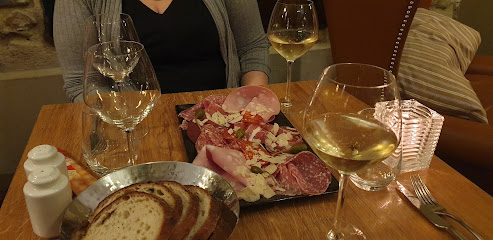
Markets, malls and hidden boutiques
Galeries Lafayette Reims
Discover unparalleled shopping at Galeries Lafayette Reims, where luxury meets local charm in the heart of the Champagne region.
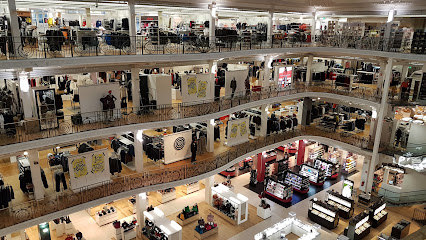
Espace d'Erlon shopping mall
Explore Espace d'Erlon in Reims: A premier shopping destination blending local charm with global brands for a unique retail experience.
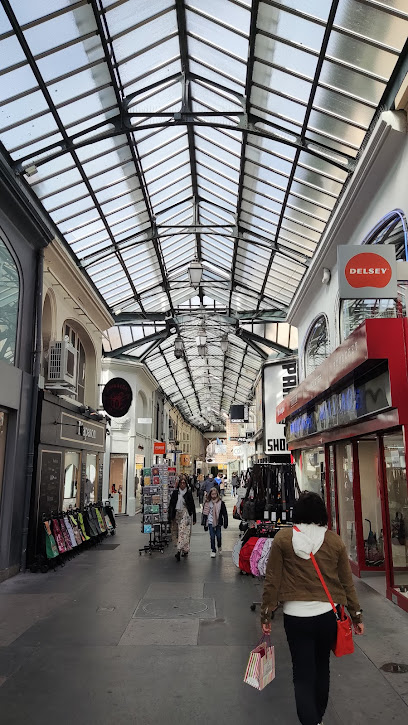
Nature and Discoveries
Discover the unique charm of Nature and Discoveries in Reims - a gift shop that brings nature-inspired treasures to life.
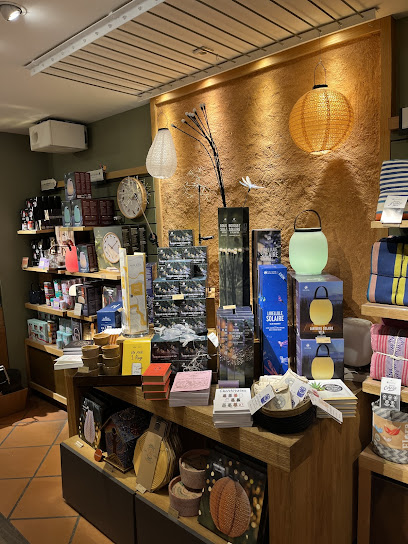
LUSH Cosmetics Reims
Explore LUSH Cosmetics Reims for handmade beauty products, fresh fragrances, and sustainable cosmetics in a vibrant shopping experience.
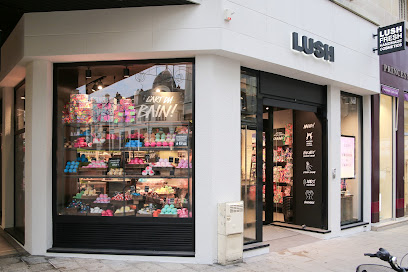
Bookstore Guerlin Colbert
Discover creativity and literature at Bookstore Guerlin Colbert in Reims, where every corner invites exploration and inspiration.
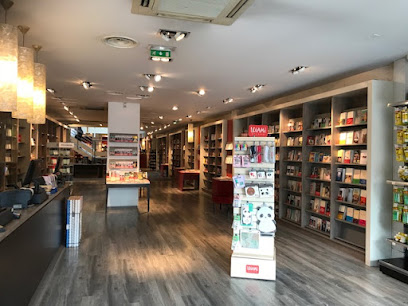
Flying Tiger Copenhagen Reims
Explore the whimsical world of Flying Tiger Copenhagen in Reims, where unique gifts and playful decor await every visitor.
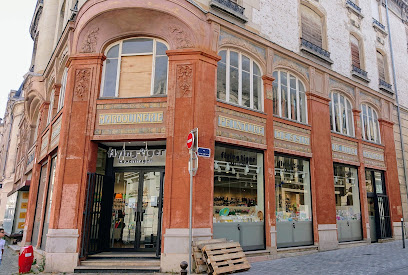
HEROES SANCTUARY
Explore Heroes Sanctuary in Reims for unique gifts and local treasures that capture the spirit of France.
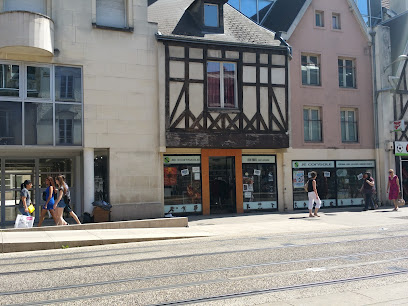
Trésors de Champagne
Experience the finest selection of Champagne and local wines at Trésors de Champagne, the heart of Reims wine culture.
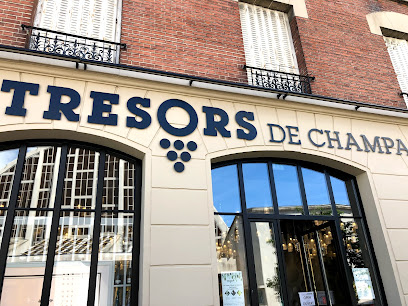
L'éveil des thés
Experience the art of tea at L'éveil des thés, where exquisite blends and expert advice await in the heart of Reims.
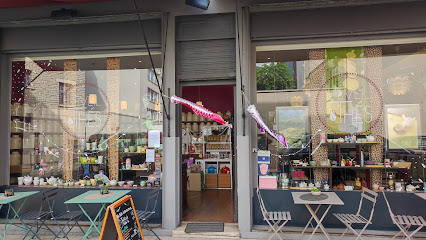
L'Odyssée des Jeux
Explore L'Odyssée des Jeux in Reims: A treasure trove of board games, puzzles, and unique gifts for every traveler.
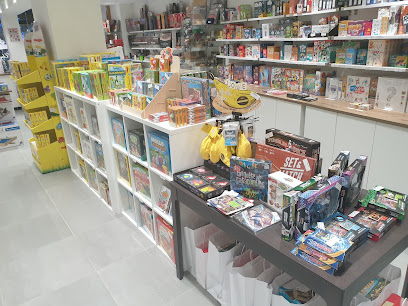
La petite boutique
Discover La Petite Boutique in Reims, a charming florist offering fresh flowers, dried arrangements, and unique handcrafted decor items.
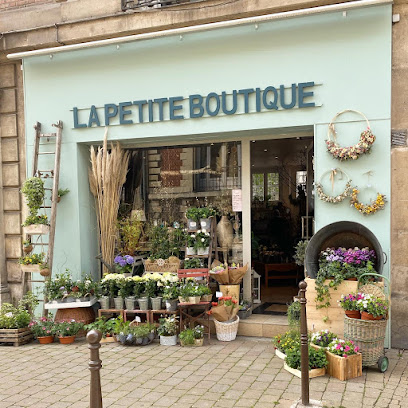
CPH La Grande Boutique Du Vin
Explore CPH La Grande Boutique Du Vin in Reims for an exquisite selection of wines and spirits, perfect for every connoisseur.
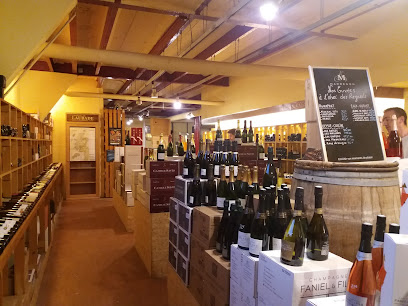
Le Vintage Whisky
Discover the finest selection of whiskies at Le Vintage Whisky in Reims, where every bottle tells a story of craftsmanship and tradition.
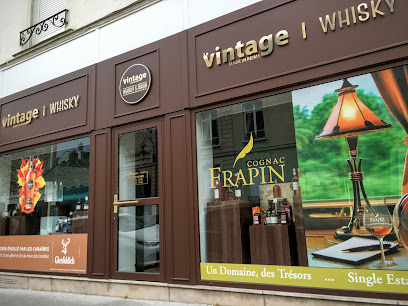
LA RÉGENCE Rhum Champagne Cigares Écriture
Discover unique souvenirs and local delicacies at LA RÉGENCE in Reims, the perfect gift shop for an authentic French experience.
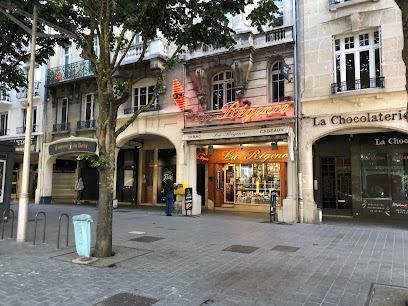
Mini...KAL
Explore Mini...KAL in Reims for a magical shopping experience filled with children's toys and unique gifts to delight all ages.
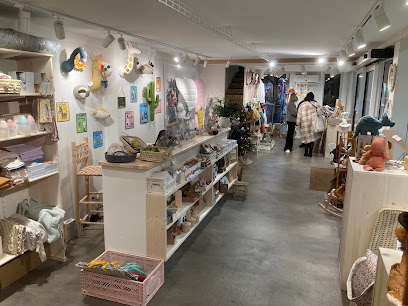
Essential bars & hidden hideouts
Le Clos
Experience the heart of Champagne at Le Clos, a charming wine bar in Reims offering exquisite local wines and a warm, inviting atmosphere.
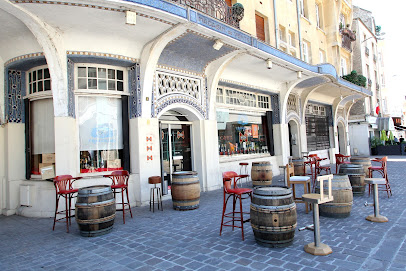
Mr Fogg's Pub Reims (Bar Reims)
Discover Mr Fogg's Pub in Reims - A vibrant pub offering a fantastic selection of beers, wines, and delicious tapas in a lively atmosphere.
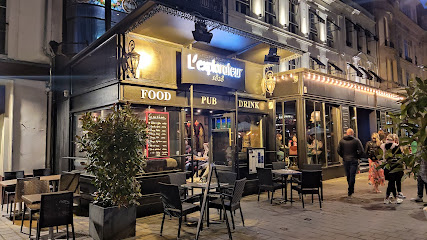
Ernest Hemingway Café
Discover the charm of Ernest Hemingway Café in Reims, where literary inspiration meets culinary delights in a cozy atmosphere.
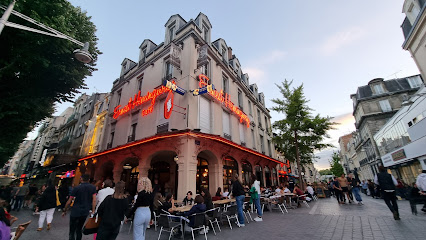
Dropkick bar
Discover the lively Dropkick Bar in Reims – a premier pub and concert hall offering delicious food, refreshing beers, and vibrant entertainment for every visitor.
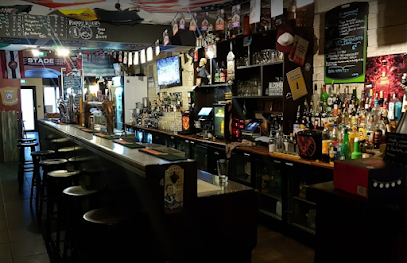
Pub l'Escale
Discover a vibrant bar in Reims, Pub l'Escale offers a cozy atmosphere, local drinks, and a taste of authentic French culture.
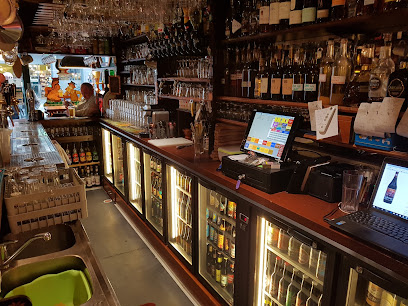
Au Fût et à mesure Reims
Discover the unique self-service beer hall experience at Au Fût et à Mesure in Reims, where craft beer meets lively entertainment.
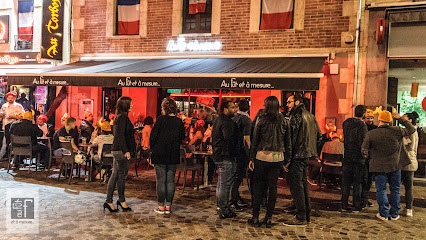
Gin Pamp
Discover the perfect blend of local flavors and vibrant atmosphere at Gin Pamp in Reims, a must-visit bar and brasserie experience.
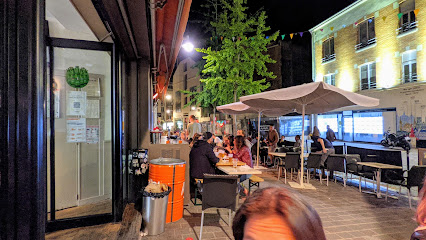
The Glue Pot
Experience the best of local wines and brews at The Glue Pot, Reims' charming wine bar and brewery in the heart of Champagne.
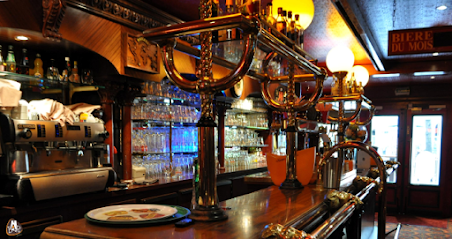
La Loge
Experience the vibrant nightlife of Reims at La Loge, where live music and an energetic atmosphere create unforgettable memories.
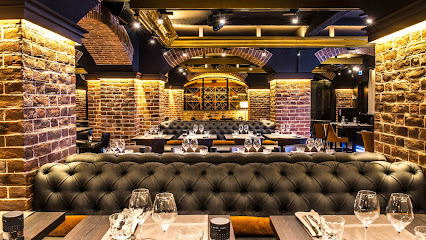
L.Bee Bar
Experience the vibrant nightlife of Reims at L.Bee Bar, where delicious drinks and a lively atmosphere come together for an unforgettable evening.
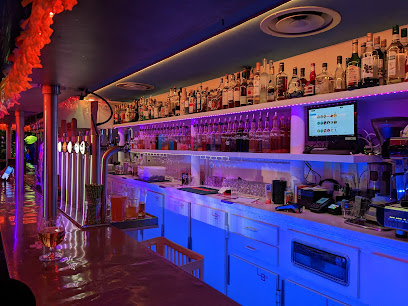
Le Wine Bar by Le Vintage
Indulge in the finest selection of wines and authentic French flavors at Le Wine Bar by Le Vintage in Reims, a must-visit for wine lovers.
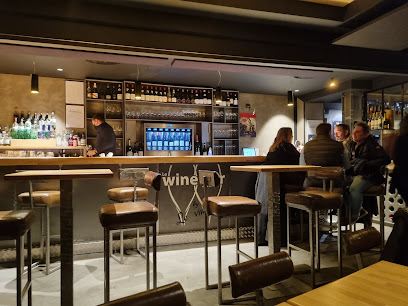
Le Cochon à Plumes
Discover Le Cochon à Plumes, a vibrant bar in Reims offering exquisite drinks and a taste of local culture in a lively atmosphere.
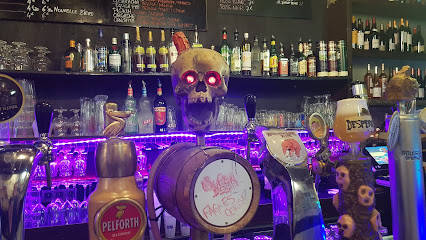
Les Vieux de la Vieille
Discover the heartbeat of Reims at Les Vieux de la Vieille, a live music bar offering an unforgettable night of local talent and vibrant atmosphere.
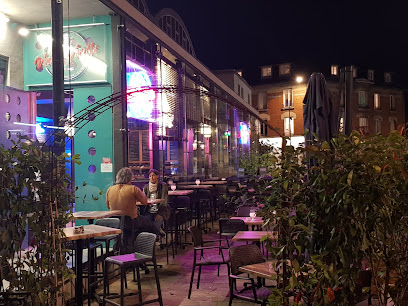
La Petite Halle Reims
Discover the lively ambiance of La Petite Halle, a must-visit bar in Reims, blending local culture with an unforgettable nightlife experience.
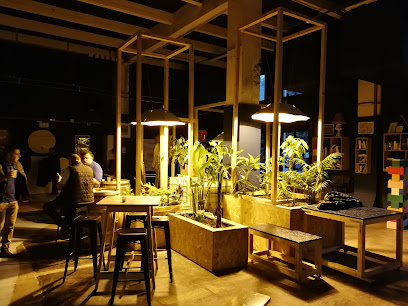
Local Phrases
-
- HelloBonjour
[bon-zhoor] - GoodbyeAu revoir
[oh ruh-vwahr] - YesOui
[wee] - NoNon
[nohn] - Please/You're welcomeS'il vous plaît / De rien
[seel voo pleh / duh ryen] - Thank youMerci
[mehr-see] - Excuse me/SorryExcusez-moi / Désolé
[ex-kew-zay mwa / day-zoh-lay] - How are you?Comment ça va?
[koh-mohn sah vah] - Fine. And you?Bien. Et vous?
[byen. ay voo] - Do you speak English?Parlez-vous anglais?
[par-lay voo ahn-glay] - I don't understandJe ne comprends pas
[zhuh nuh kohm-prahnd pah]
- HelloBonjour
-
- I'd like to see the menu, pleaseJe voudrais voir le menu, s'il vous plaît
[zhuh voo-dray vwahr luh meh-noo, seel voo pleh] - I don't eat meatJe ne mange pas de viande
[zhuh nuh mahnj pah duh vee-and] - Cheers!Santé!
[sahn-tay] - I would like to pay, pleaseJe voudrais payer, s'il vous plaît
[zhuh voo-dray pay-yay, seel voo pleh]
- I'd like to see the menu, pleaseJe voudrais voir le menu, s'il vous plaît
-
- Help!Au secours!
[oh suh-koor] - Go away!Allez-vous en!
[ah-lay voo ahn] - Call the Police!Appelez la police!
[ah-peh-lay lah pee-lees] - Call a doctor!Appelez un médecin!
[ah-peh-lay uh meh-deh-sahn] - I'm lostJe suis perdu(e)
[zhuh swee pair-doo] - I'm illJe suis malade
[zhuh swee mah-lahd]
- Help!Au secours!
-
- I'd like to buy...Je voudrais acheter...
[zhuh voo-dray ah-shet-ay] - I'm just lookingJe regarde juste
[zhuh ruh-gard joo-st] - How much is it?Combien ça coûte?
[kohm-byen sah koot] - That's too expensiveC'est trop cher
[say troh shair] - Can you lower the price?Pouvez-vous baisser le prix?
[poo-veh voo bay-say luh pree]
- I'd like to buy...Je voudrais acheter...
-
- What time is it?Quelle heure est-il?
[kel uhr ay-teel] - It's one o'clockIl est une heure
[eel ay oon uhr] - Half past (10)Dix et demi
[dees ay duh-mee] - MorningMatin
[ma-tan] - AfternoonAprès-midi
[ah-pray mee-dee] - EveningSoir
[swahr] - YesterdayHier
[ee-air] - TodayAujourd'hui
[oh-zhoor-dwee] - TomorrowDemain
[duh-man] - 1Un
[uhn] - 2Deux
[duh] - 3Trois
[twah] - 4Quatre
[kah-truh] - 5Cinq
[sank] - 6Six
[sees] - 7Sept
[sept] - 8Huit
[wheat] - 9Neuf
[nuff] - 10Dix
[dees]
- What time is it?Quelle heure est-il?
-
- Where's a/the...?Où est le/la...?
[oo ay luh/lah] - What's the address?Quelle est l'adresse?
[kel ay lah-dress] - Can you show me (on the map)?Pouvez-vous me montrer (sur la carte)?
[poo-veh voo muh mohn-tray (sur lah kart)] - When's the next (bus)?Quand est le prochain (bus)?
[kahn ay luh proh-shahn (bus)] - A ticket (to ....)Un billet (pour ...)
[uhn bee-yay (poor)]
- Where's a/the...?Où est le/la...?
History of Reims
-
Reims, originally known as Durocortorum, was founded by the Gauls and later became a major city in the Roman Empire. It served as the capital of the Roman province of Gallia Belgica. The city boasted impressive Roman architecture, including an amphitheater, a triumphal arch, and extensive baths.
-
In 496 AD, Clovis, the king of the Franks, was baptized by Saint Remi, the Bishop of Reims. This event marked the beginning of the Christianization of the Frankish kingdom and set the tradition of Reims being the coronation site for French kings.
-
The Notre-Dame de Reims Cathedral, built between the 13th and 14th centuries, is one of the finest examples of Gothic architecture in France. It has been the site of the coronation of French kings for over a thousand years, including the crowning of Charles VII in 1429, attended by Joan of Arc.
-
During the Hundred Years' War, Reims was under English control until 1429. Joan of Arc, a peasant girl who claimed divine guidance, played a pivotal role in liberating Reims and ensuring the coronation of Charles VII in the city's cathedral.
-
Reims is located in the heart of the Champagne wine region. The city's underground chalk cellars, some dating back to Roman times, are used for aging Champagne. Houses like Veuve Clicquot, Taittinger, and Pommery have made Reims a global hub for Champagne production.
-
Reims was heavily bombarded during World War I, leading to significant destruction. The cathedral suffered extensive damage, but its reconstruction became a symbol of resilience and hope. The city's rebuilding efforts were led by renowned architects and artisans.
-
During World War II, Reims was occupied by German forces until its liberation by Allied troops in 1944. General Dwight D. Eisenhower's headquarters were established in Reims, and the unconditional surrender of Nazi Germany was signed at the city's Lycée Jean-Baptiste Colbert on May 7, 1945.
-
Today, Reims is a vibrant city that balances its rich historical heritage with modern innovation. The city is home to several universities, research institutions, and cultural festivals, making it a dynamic and diverse destination.
Reims Essentials
-
Reims is well-connected by various modes of transportation. The nearest major airport is Paris Charles de Gaulle Airport (CDG), located approximately 130 kilometers away. From the airport, you can take a high-speed TGV train directly to Reims, which typically takes about 45 minutes. Alternatively, you can take a train from Paris Gare de l'Est station to Reims. The journey takes around 45 minutes to 1 hour. If you prefer driving, Reims is accessible via the A4 motorway from Paris.
-
Reims has an efficient public transportation system, including buses and trams operated by CITURA. Tickets can be purchased at kiosks or on board. For short distances, walking or renting a bicycle is a great option to explore the city. Taxis and ride-sharing services like Uber are also available. If you plan to explore the Champagne region, renting a car can provide flexibility and convenience.
-
The official currency in France is the Euro (EUR). Credit and debit cards are widely accepted in hotels, restaurants, and shops. It is advisable to carry some cash for small purchases, especially in local markets or smaller establishments. ATMs are readily available throughout Reims for cash withdrawals.
-
Reims is generally a safe city for tourists. However, it is wise to take standard precautions. Avoid poorly lit areas at night and be cautious in crowded places to prevent pickpocketing. While there are no specific high-crime areas targeting tourists, staying vigilant is always a good practice. Keep your belongings secure and avoid displaying valuables openly.
-
In case of emergency, dial 112 for immediate assistance. This number connects you to emergency services, including police, medical, and fire services. Reims has several hospitals and medical facilities that can provide emergency care. Pharmacies are also available throughout the city for minor health issues. Ensure you have travel insurance that covers medical emergencies.
-
Fashion: Do dress smart-casual when dining out or visiting attractions. Avoid overly casual or revealing clothing. Religion: Do show respect when visiting religious sites. Dress modestly and be quiet inside places of worship. Public Transport: Do validate your ticket before boarding. Don’t eat or drink on public transport. Greetings: Do greet people with a friendly 'Bonjour' (Good day). A handshake is a common greeting. Eating & Drinking: Do try local specialties like Champagne and Reims' pink biscuits. Don’t rush your meal; dining is a leisurely experience in France.
-
To experience Reims like a local, visit the local markets such as Les Halles du Boulingrin to sample fresh produce and regional products. Take a leisurely walk along the Canal de l'Aisne à la Marne. Attend a Champagne tasting tour to learn about the region's renowned beverage. Engage with locals in French; even basic phrases are appreciated. Don’t miss visiting the Notre-Dame Cathedral and the Palace of Tau for a glimpse into Reims' rich history.
Trending Landmark in Reims
-
Cathedral of Notre-Dame of Reims
-
Place Drouet d'Erlon
-
Basilique Saint-Remi
-
Parc de Champagne
-
La Porte de Mars
-
Musée Automobile Reims Champagne
-
Opéraims
-
Fort de la Pompelle Museum
-
Palais du Tau
-
Musée de la Reddition
-
Cryptoportique
-
Champagne Vranken - Villa Demoiselle
-
Reims Touristic Office
-
Musée Saint-Remi
-
Square Colbert
Nearby Cities to Reims
-
Things To Do in Dinant
-
Things To Do in Paris
-
Things To Do in Mons
-
Things To Do in Arlon
-
Things To Do in Amiens
-
Things To Do in Namur
-
Things To Do in Versailles
-
Things To Do in Dudelange
-
Things To Do in La Roche-en-Ardenne
-
Things To Do in Tournai
-
Things To Do in Luxembourg City
-
Things To Do in Wiltz
-
Things To Do in Durbuy
-
Things To Do in Louvain-la-Neuve
-
Things To Do in Lille

















